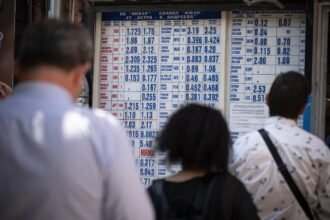Zara parent Inditex has earmarked 50 million euros ($54.5 million) for investing in innovation projects, predominantly involving textiles.
The Mundi Ventures-managed fund, news of which was first reported Friday by Spanish website El Confidencial, is part of the retail giant’s efforts to back emerging innovations and materials with a smaller environmental footprint.
Fast fashion, a business model of low prices and rapid speed to market that Zara helped pioneer, is facing mounting scrutiny for its role in stoking climate change, driving textile waste pollution and exacerbating exploitative conditions such as poverty wages and inhumane working hours in the global South.
As the world’s largest apparel and footwear retailer by revenue—though Shein is rapidly catching up—Inditex is one of the industry’s most obvious pressure points. Scope 3, the category of value-chain emissions not within a company’s direct control, can make up 90 percent of a brand’s total climate burden. Of those, 53 percent can stem from material processing, followed by 23 percent from raw materials extraction, according to the Apparel Impact Institute and World Resources Institute.
The Spanish conglomerate has committed to halving its greenhouse gas emissions by 2030, with an eye on achieving net zero emissions by 2040. It also aims to produce 40 percent of its textile fibers from conventional recycling processes, 25 percent from crops grown using organic or regenerative farming practices and 10 percent from other so-called “preferred” materials as characterized by benchmark organizations such as Textile Exchange. The remaining 25 percent, the Bershka and Pull&Bear owner has said, will be made from fibers that don’t yet exist on an industrial scale, which is why it’s “investing decisively in their development.”
Inditex was one of Renewcell’s early supporters, though a pivotal pledge last October to snap up the first available 2,000 metric tons of Circulose from viscose producer Tangshan Sanyou wasn’t enough to spare the Swedish textile recycler from declaring bankruptcy a few months later. (The company has since resurrected as Circulose.) But Inditex wasn’t counting on Renewcell alone: The same month, it signed a three-year, 70 million-euro ($76.3 million) offtake agreement to purchase Cycora, the textile-to-textile recycled polyester developed by Los Angeles-based Ambercycle. The year before, it inked a 100 million-euro ($109 million) deal with Finland’s Infinited Fiber Company to buy 30 percent of the latter’s annual future production volume of Infinna, a cellulosic fiber created from 100 percent castoff textiles, over three years.
Zara has also created two capsule collections with Circ, a Virginia startup that breaks down poly-cotton clothing waste to produce recycled lyocell and polyester. More recently, Inditex threw its backing behind Boston’s Galy, which cultivates lab-grown cotton that it says requires 99 percent less water and 97 percent land and generates 77 percent less carbon dioxide than the conventional kind. Both Infinited Fiber Company and Galy are part of Mundi Ventures’ existing portfolio.




















